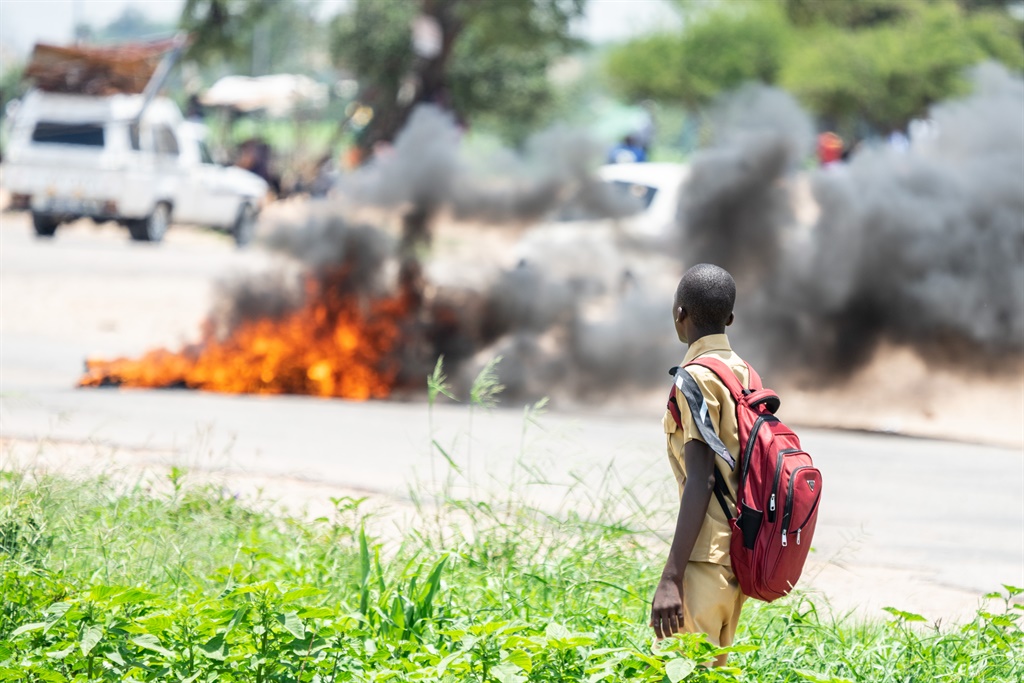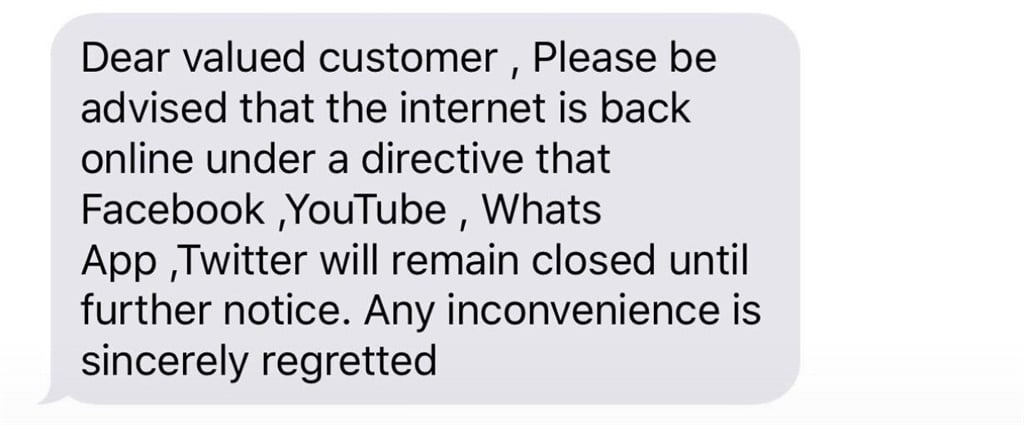- South Africa’s internet connection can be disrupted by disrupting access to international lines – but it wouldn’t be likely or easy.
- South Africa’s close neighbour Zimbabwe shut down internet connection last week when violent protests broke out.
- But while Zimbabwe has just eight internet providers, South Africa has hundreds.
In theory, South Africa’s internet connection can be disrupted by instructing telecommunication companies to shut down access to international lines, some cybersecurity experts believe – but it would not be easy.
Zimbabwe, South Africa’s close neighbour, shut down internet connectivity in the country last week as countrywide violent protests erupted after fuel prices nearly doubled to R43 a litre.
In an SMS to consumers on Thursday, a Zimbabwean telecommunication provider said internet access was restored, but “under a directive that Facebook, YouTube, WhatsApp and Twitter will remain closed until further notice.”
The South Africa state can theoretically do the same by disrupting connection to undersea cables, Dr Nyx McLean, Cape Peninsula University of Technology (CPUT) lecture in digital culture and information technology, said.
“Any government can do this especially if there is a telecommunications/ICT monopoly and if it is held by the state or state-owned businesses,” McLean told Business Insider South Africa.
McLean said the South African state has already previously jammed signals in parliament in 2016.
“This is on a minor scale but it is not beyond government to consider this as an option should they wish to limit access to information.”
South Africa’s Internet Service Providers’ Association (Ispa), however, believes there is little to no chance that the state will disrupt internet connection.
South Africa has over a hundred internet providers, multiple terrestrial and undersea links, opposed to Zimbabwe which only has eight internet providers, Ispa said.
“There is no specific legislation which provides for South African internet service providers to block access to social media sites or cease providing internet access to their customers based on a general order issued by the government,” the organisation told Business Insider.
“In general, [South African] policymakers have demonstrated a healthy respect for the freedoms enjoyed by South Africans using the Internet to communicate.”
Under the cover of the internet blackout, the military have unleashed a campaign of terror. Soldiers are shooting people. bashing down doors, dragging people out of homes & beating them up, making ppl roll in the mud. No one is covering what’s happening. #shutdownZimbabwe
— Doug Coltart ✊🏽🇿🇼 (@DougColtart) January 15, 2019
South Africa connects to the global internet by way of half a dozen undersea cables that land at three different coastal sites. Many internet providers also actively use, or keep available as backups, satellite connections via satellites operated by large foreign companies – which may not accept unlawful orders from South Africa to sever those connections.
Rogan Dawes, researcher at cybersecurity consultancy SensePost, said governments at times want to shut down the internet because of its value in organising grassroots events.
In some circumstances, governments may claim that this threatens public order, and take a stance that shutting down the internet is required to maintain public safety, he said.
“In my opinion, the best way to combat internet infringement is ensuring the rule of law survives, and any efforts to curtail our rights in that regard should be strongly resisted,” Dawes said.
Post published in: Business



